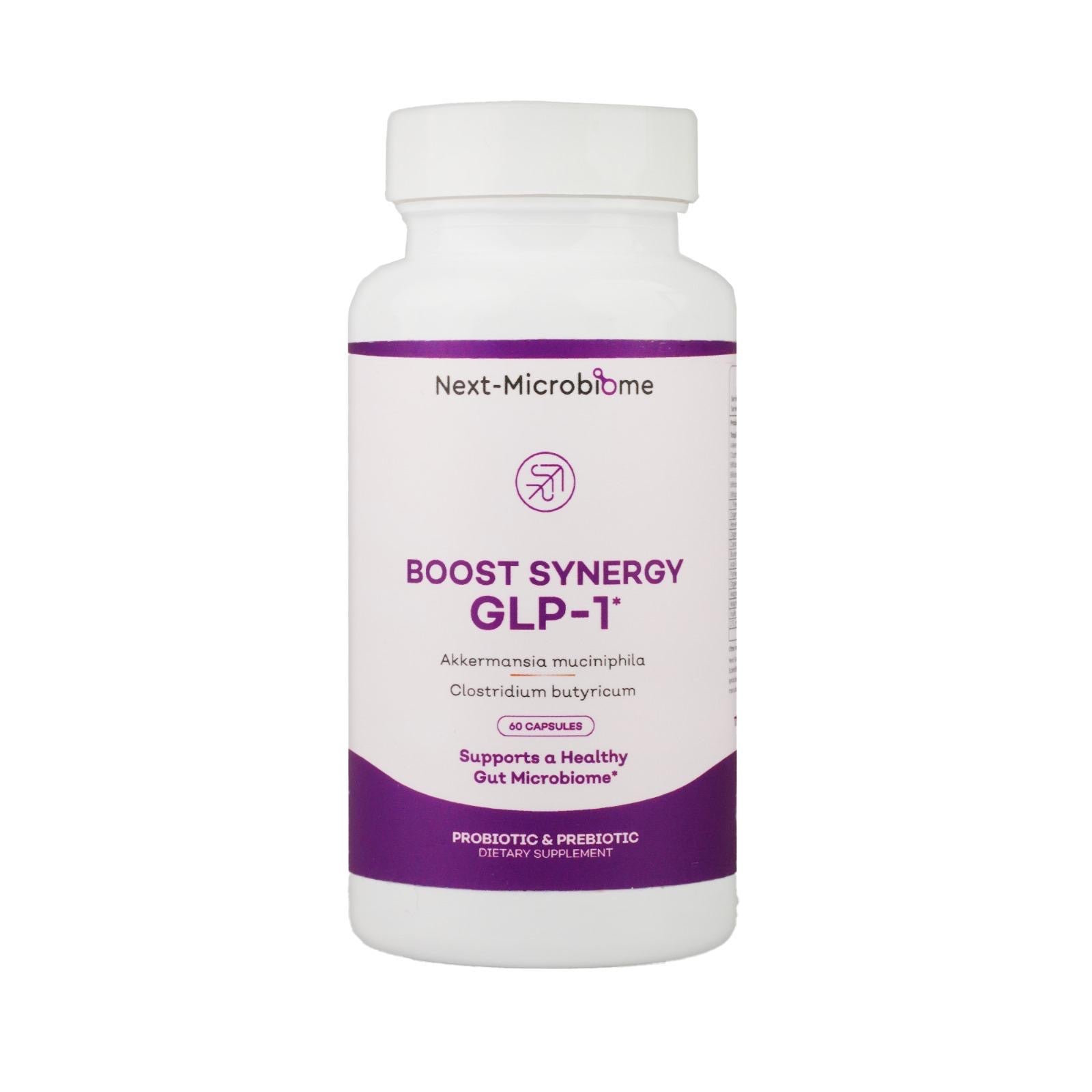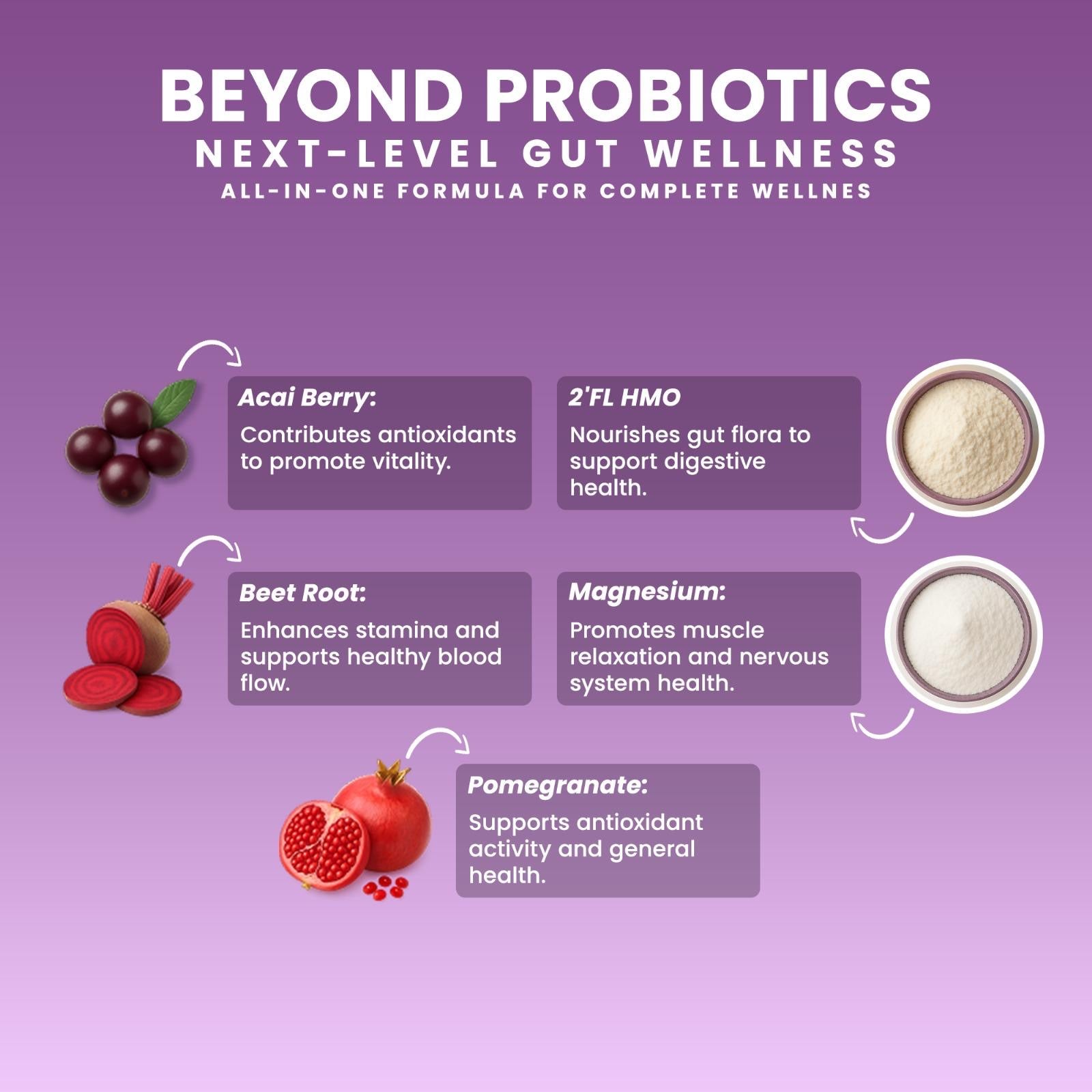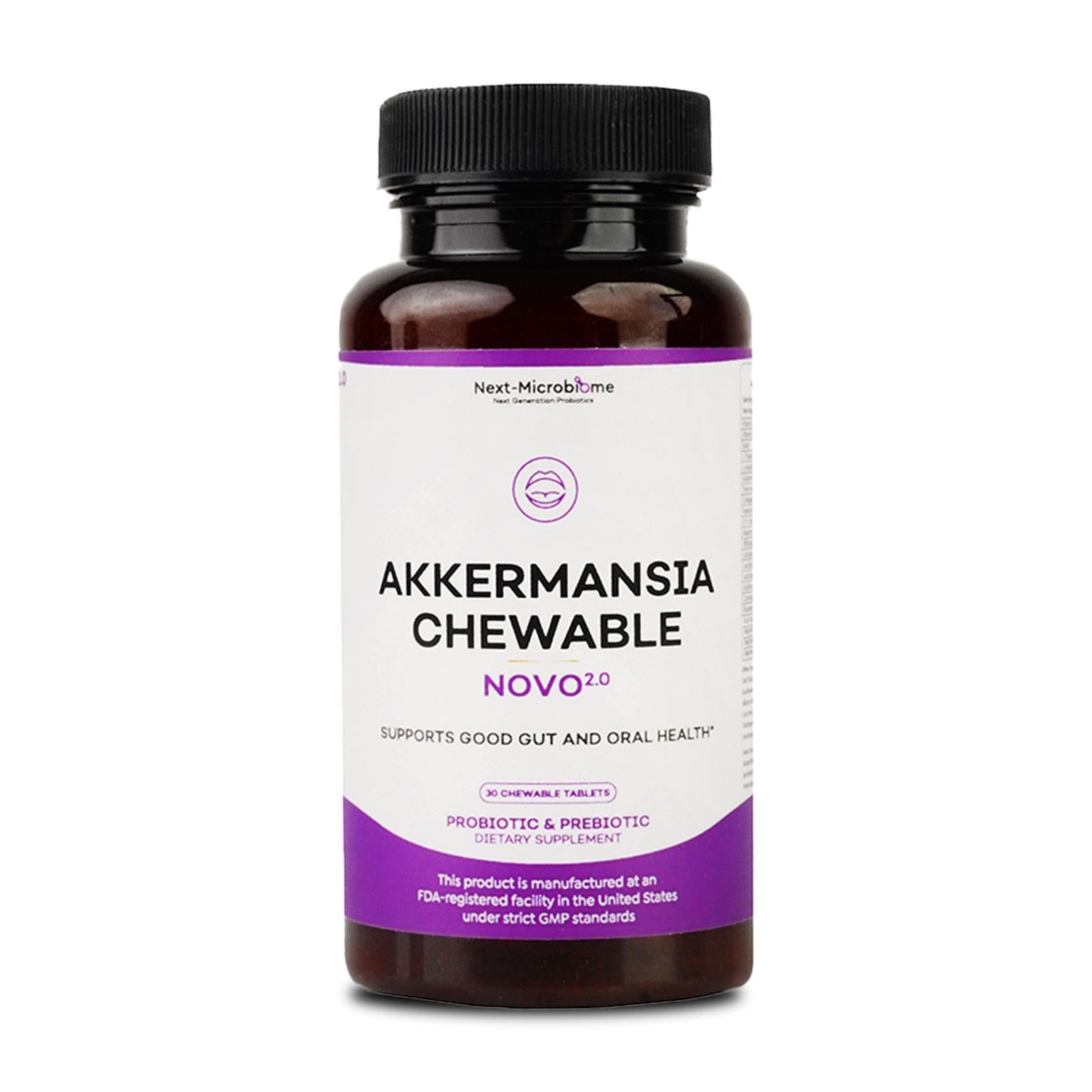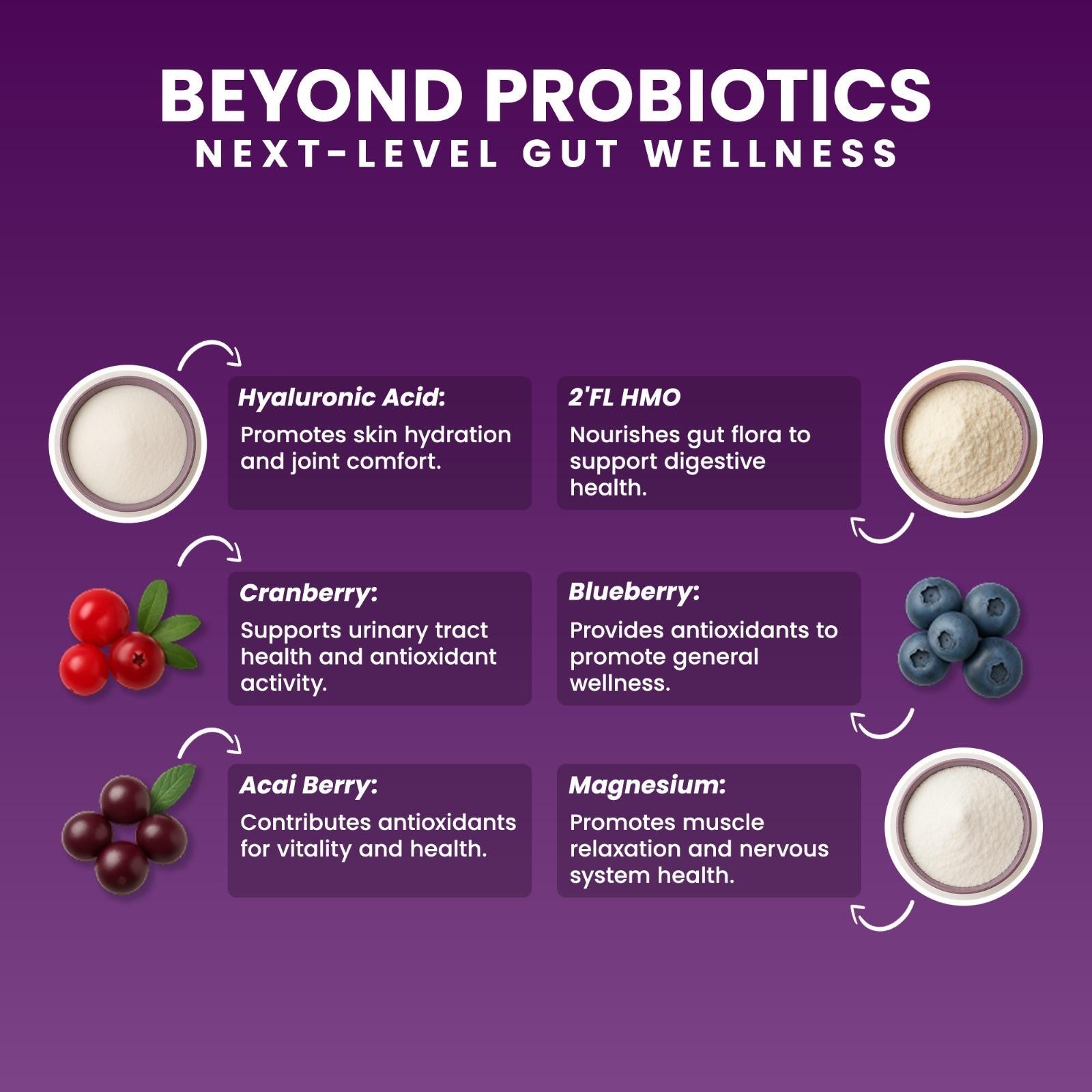
Prebiotics for Gut Health: Feed Good Bacteria, Improve Digestion & Strengthen Microbiota
Prebiotics for Gut Health: Feed Good Bacteria, Improve Digestion & Strengthen Your Microbiota
Most people know about probiotics — but fewer understand that prebiotics are the fuel that helps good bacteria grow, multiply, and support your entire digestive system. Without prebiotics, probiotics cannot colonize effectively or deliver long-term benefits.
This is why search interest in “prebiotics for gut health,” “prebiotics for digestive health,” “prebiotic supplements for gut health,” and “healthy microbiota support” has surged in recent years.
Prebiotics nourish beneficial gut bacteria such as Bifidobacteria, Akkermansia, and butyrate-producing microbes, helping your microbiome stay resilient, diverse, and well-balanced.
They play a crucial role in digestive health, microbiota stability, gut lining integrity, and immune function.
What Are Prebiotics?
Prebiotics are specialized plant fibers or complex carbohydrates that selectively feed beneficial bacteria in your gut.
They help beneficial bacteria produce:
-
short-chain fatty acids (SCFAs)
-
anti-inflammatory metabolites
-
mucin-supporting compounds
-
fermentation byproducts that strengthen gut lining health
Prebiotics are essential for microbiota balance, digestive wellness, and long-term gut health.

Most Effective Prebiotics for Gut Health
The best prebiotics for digestion and microbiome support include:
Inulin
Feeds Bifidobacteria and supports smoother digestion.
Fructo-Oligosaccharides (FOS)
Promotes microbial diversity and supports bowel regularity.
Resistant Starch
Feeds butyrate-producing microbes essential for gut lining health.
HMO 2′-Fucosyllactose (2′-FL)
Clinically shown to nourish beneficial species like Bifidobacteria and Akkermansia.
Polyphenols
Found in berries, pomegranate, cocoa, and green tea.
A comprehensive meta-analysis published in MDPI Nutrients found that polyphenol-rich interventions consistently increased the abundance of beneficial gut microbes—most notably Akkermansia muciniphila—highlighting polyphenols as a powerful nutritional strategy for microbiome optimization.
Link: https://www.mdpi.com/2072-6643/17/15/2468
These prebiotic nutrients strengthen the entire gut ecosystem.
How Prebiotics Improve Digestion & Gut Lining Strength
Prebiotics support digestion through several key mechanisms:
1. Feeding Beneficial Bacteria
They enhance the growth of Bifidobacteria, Akkermansia, and butyrate-producing species.
2. Strengthening the Gut Barrier
Prebiotics support mucin production and tight-junction proteins, improving gut lining resilience.
3. Improving Motility & Regularity
Prebiotics help maintain smoother digestion and comfortable bowel movements.
4. Reducing Digestive Inflammation
A randomized clinical trial in Gut Microbes showed that the prebiotic inulin-type fructans increased beneficial short-chain fatty acids and improved clinical markers of active ulcerative colitis—linking prebiotic-driven SCFA production to reduced gut inflammation and better digestive health.”
Link: https://pubmed.ncbi.nlm.nih.gov/30395776/
5. Supporting Microbiota Diversity
Diverse microbiota = more stable digestion and stronger immunity.
Prebiotics are a foundational part of long-term digestive health support.

Prebiotics + Probiotics: A Complete Gut-Health Strategy
Prebiotics feed probiotics.
Probiotics balance the microbiome.
Akkermansia strengthens the gut lining.
Together, they create a complete digestive support system.
For a deeper understanding of these relationships, explore the previous articles in this series:
👉 Akkermansia: The Key to Gut Health
👉 Gut Health Probiotics: Improve Digestion & Microbiome Balance
👉 Probiotics for Digestive Health: Reduce Bloating, Strengthen Gut Lining & Improve Digestion
Together, prebiotics and probiotics deliver:
-
stronger intestinal lining
-
smoother digestion
-
improved nutrient absorption
-
reduced bloating
-
better microbial diversity
This is the foundation of digestive wellness.
Choosing the Best Prebiotic Supplement
A high-quality prebiotic supplement for gut health should include:
-
Inulin or chicory fiber
-
FOS (fructo-oligosaccharides)
-
Resistant starch
-
HMO 2′-FL
-
Polyphenol-rich extracts
-
Clean, high-purity ingredients
These ingredients support:
-
digestive wellness
-
gut lining structure
-
microbial diversity
-
smoother motility
-
long-term microbiome stability
For a comprehensive formula containing prebiotics, probiotics, polyphenols, and Akkermansia-supportive nutrients, explore:

🟦 INTERNAL LINKS
-
Gut Health Probiotics: Improve Digestion & Microbiome Balance
-
Probiotics for Digestive Health: Reduce Bloating, Strengthen Gut Lining & Improve Digestion
❓ FAQ (6 Questions)
1. What are prebiotics?
Prebiotics are non-digestible fibers that feed beneficial gut bacteria and support microbiota balance.
2. How do prebiotics improve digestion?
They enhance microbial growth, improve motility, support gut lining health, and reduce digestive inflammation.
3. What foods contain prebiotics?
Garlic, onions, leeks, chicory root, bananas, asparagus, resistant starch foods, and polyphenol-rich fruits.
4. Do prebiotics work better with probiotics?
Yes — prebiotics feed probiotics, significantly improving their effectiveness.
5. Are prebiotic supplements safe for daily use?
Yes. Most people tolerate them well, and they support long-term digestive wellness.
6. How long does it take for prebiotics to work?
Most people notice improvements within 1–3 weeks.
Written by Ali Rıza Akın
Microbiome Scientist, Author & Founder of Next-Microbiome
Ali Rıza Akın is a microbiome scientist with nearly 30 years of biotechnology and translational research experience in Silicon Valley. He is the discoverer of Christensenella californii, a novel human-associated bacterial species linked to metabolic health and mucosal integrity.
His scientific work spans:
-
mucosal immunology
-
gut barrier biology
-
oral–gut microbiome interactions
-
SCFA metabolism
-
next-generation probiotics (Akkermansia, Christensenella, Clostridium butyricum)
-
host–microbe signaling
-
microbial therapeutics
He is the author of Bakterin Kadar Yaşa: İçimizdeki Evren (Live as Long as Your Bacteria) and a contributor to Bacterial Therapy of Cancer: Methods and Protocols (Springer, Methods in Molecular Biology).
As Founder of Next-Microbiome, Ali develops advanced synbiotic formulations — including the industry’s first chewable Akkermansia-supporting synbiotic — designed to strengthen the gut lining, support metabolic resilience, enhance mucosal immunity, and harmonize the oral–gut microbiome axis.











